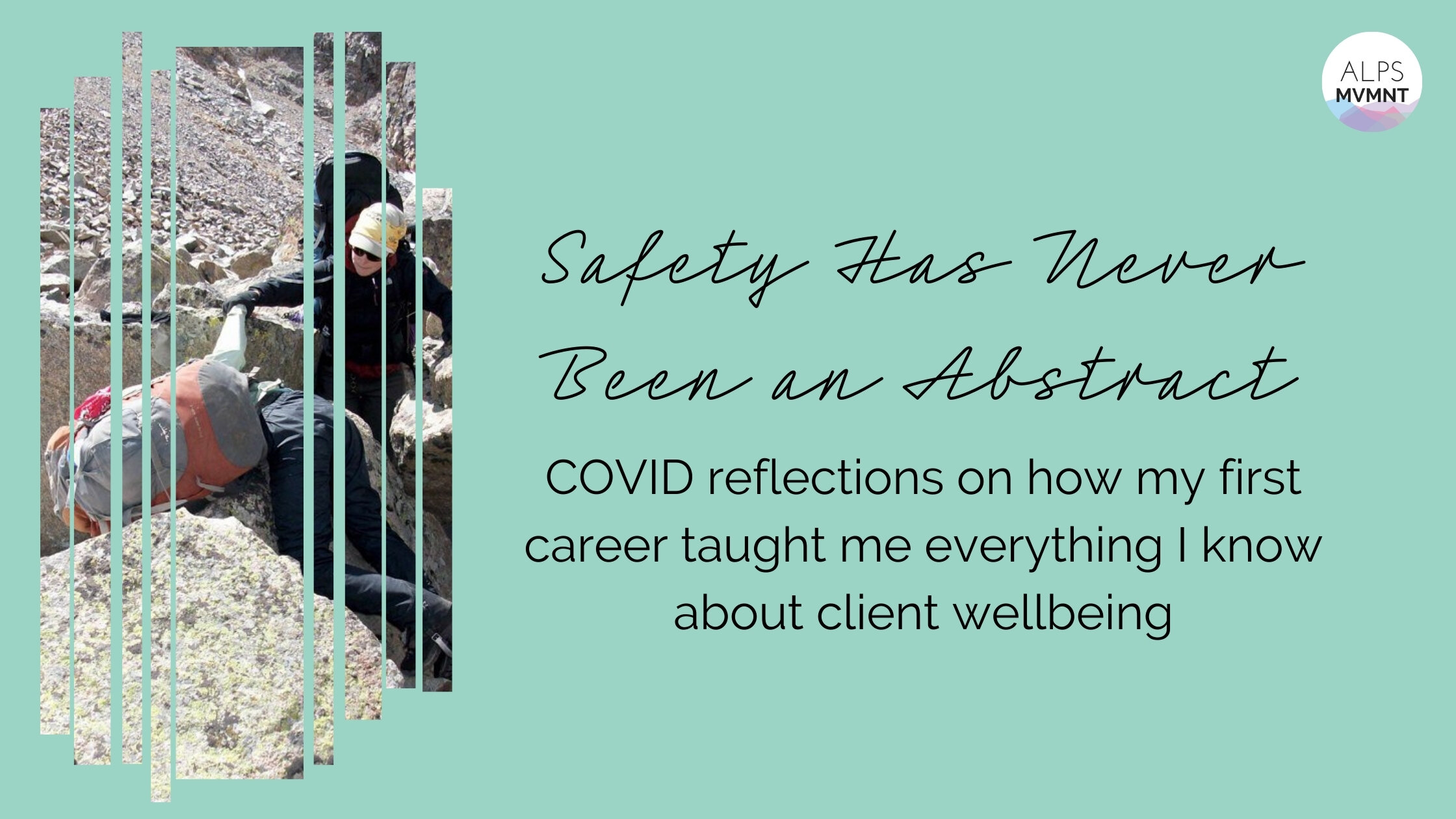Spinal Assessments & Evacuations: Becoming the Movement Teacher I Am
The past few weeks, I’ve been thinking a lot about my the path my career has taken. In my last job before working exclusively in movement, risk assessment of life or death situations was an everyday part of my organization’s operations and communications. Yes, I worked in education, but more specifically, I was specialized in outdoor education. In outdoor environments, accidents happen & the consequences are higher, simply because you are so far removed from hospitals & aid teams.
Three Stories, Three Examples
When the Nepalese earthquake hit, my entire team had to stop our work immediately because our students and peers were in the area. Even though we worked in a marketing office an ocean away, we had to ensure our people were accounted for before we carried on with our day. Additionally, out of respect to their families, it would have been wholly inappropriate to be launching campaigns or posting on social media as if everything was fine.
In Scandinavia, I was on a small logistics and operations team that needed to coordinate food and supply drop-offs for expeditions. In one particularly busy week, my colleagues were pulled away to focus on a major medical evacuation, leaving me to manage the re-rations alone. The fact that I didn’t speak Swedish or Norwegian was a tiny inconvenience; my Scandinavian colleagues were needed for much more serious tasks at the hospital.
I helped on a spinal assessment when there was no emergency hotline to call because we were so far off grid. Of course I was scared, but I needed to accept the situation, take a deep exhale and focus on the skills I had because showing my friend, the patient, my panic, would only make the situation worse.
I didn’t leave outdoor education because of these stories. They made me the experiential teacher I am.
In all of those situations, we ensured our students and staff were taken care of and the learning experience never stopped for anyone involved. In the outdoors, things go differently than planned - but the key is to adapt, communicate and be considerate of all parties involved.
While my work has shifted, these experiences inform my personality and the teacher I am today. In the “frontcountry” I might make decisions that seem unusual compared to my Fitness peers, but taking care of my clients and ensuring they have a safe learning environment is still my priority. It always has been, always will be.

